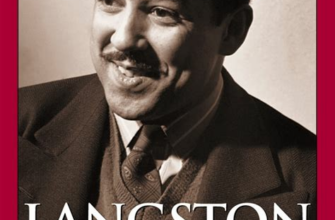Within the vast realm of literature, certain figures transcend the boundaries of time and space, leaving an indelible mark on both their contemporaries and future generations. The treasured insights and enchanting narratives of Anton Chekhov, an extraordinary wordsmith of the late 19th century, continue to captivate audiences worldwide. This profound examination delves into the nuanced tapestry of Chekhov's existence, illuminating the enigmatic persona behind his illustrious body of work.
As one delves into the life and works of this literary luminary, one cannot help but be transported to the majestic landscapes of late 19th century Russia. Born on January 29, 1860, in the provincial town of Taganrog, Chekhov's early upbringing shaped his unparalleled ability to crystallize human emotions into exquisite prose. His poignant observations of the human condition, coupled with an unyielding commitment to realism, allowed him to forge a new path in narrative storytelling, drenched in authenticity and psychological depth.
Chekhov's writing stands as a testament to his profound empathy and keen perception of the human psyche. His characters, etched with breathtaking precision, possess an unparalleled universality that transcends the barriers of time and culture. The extraordinary power of Chekhov's tales lies in their ability to strip away the facades of society, exposing the raw vulnerabilities and hidden desires that lie dormant within each individual. Whether through his soul-stirring plays, masterful short stories, or richly detailed novels, Chekhov's lyrical prose unravels the complexities of human existence, setting a new standard for literary excellence.
Within the multifaceted tapestry of Chekhov's artistic achievements lies a profound exploration of themes such as love, loss, and the intricacies of human relationships. Through his masterful blend of humor and pathos, he skillfully navigates the delicate nuances of the human experience. His characters, imbued with an indelible authenticity, grapple with the eternal questions that inhabit the depths of our souls. Chekhov's ability to capture the ephemerality of life, to encapsulate the fragility, the fleeting moments that define our very existence, is a testament to his exceptional talent as a literary giant of his time and beyond.
Exploring the Early Life of Anton Chekhov: Influences and Formative Experiences

In delving into the origins of Anton Chekhov's artistic prowess, it is essential to gain a deeper understanding of the conditions and encounters that shaped this remarkable writer. The early years of Chekhov's life played a significant role in shaping his literary sensibilities, with various influences ultimately paving the way for his incredible achievements.
Influences of Childhood:
Anton Chekhov's upbringing in a modest household demonstrated the importance of resilience and resourcefulness. Growing up in a family that valued education, Chekhov was exposed to various books and encouraged to pursue knowledge and exploration. His early exposure to literature and the arts laid the groundwork for his eventual passion for storytelling.
Moreover, Chekhov's interactions with his family members, particularly his father, instilled values such as empathy and compassion. These traits would later find their way into his repertoire, as Chekhov developed a unique ability to capture the intricacies of the human condition in his works.
Formative Experiences:
During his formative years, Chekhov's experiences outside of his immediate family also left indelible marks on his creative development. Working as an assistant in a local pharmacy allowed him to witness the diverse range of individuals that make up society. This exposure to different characters, personalities, and perspectives directly influenced his ability to craft multidimensional and relatable literary personas.
Furthermore, Chekhov's time spent practicing medicine introduced him to the often harsh realities of life. The suffering and resilience he witnessed in his patients served as a wellspring of inspiration for his later works, where he skillfully depicted the complexities of the human experience with sensitivity and nuance.
In conclusion, exploring Anton Chekhov's early life reveals the profound impact of his surroundings and experiences on his artistic achievements. From his exposure to literature and the arts at home to his interactions with a diverse range of individuals in his community, Chekhov's upbringing and formative years laid the groundwork for his unmatched ability to capture the essence of humanity in his literary masterpieces.
Diving into Chekhov's Childhood: Family, Education, and Literary Interests
Exploring the formative years of Anton Chekhov unveils a compelling narrative of familial bonds, early education, and an inherent passion for literature. This section delves deep into the origins of the influential Russian playwright, shedding light on the crucial factors that shaped his future artistic endeavors.
| Family: | Chekhov's upbringing was heavily influenced by his close-knit family. His father, Pavel Yegorovich, a grocer by profession, instilled in him a strong work ethic and a sense of responsibility. His mother, Yevgeniya Yakovlevna, played a significant role in nurturing his intellectual curiosity and encouraging his literary pursuits. |
| Education: | Chekhov's formal education began at the local school in Taganrog, where he showed exceptional academic aptitude. Despite the financial constraints faced by his family, Chekhov's determination led him to secure a scholarship for further studies. He later attended the Medical Faculty of the University of Moscow, where his observations of human nature and experiences with patients would deeply influence his writing. |
| Literary Interests: | From an early age, Chekhov displayed a profound love for literature. He voraciously devoured the works of various Russian and European authors, developing a keen appreciation for storytelling and character development. His exposure to the literary traditions of the time, combined with his own creative inclinations, laid the foundation for his unique writing style characterized by realistic portrayals and subtle social commentary. |
By immersing ourselves in Chekhov's formative years, we gain a deeper understanding of the influences that shaped his literary genius. Family, education, and a passion for literature paved the path for Chekhov's future accomplishments, setting the stage for his transformation into one of the most celebrated playwrights and short story writers in history.
The Influence of Chekhov's Medical Career on his Writing Style and Themes

Due to Chekhov's extensive experience and background in medicine, his writing style and themes exhibit a distinct depth and understanding of human nature. This section aims to explore how Chekhov's medical career influenced his literary works, leading to a unique portrayal of characters and the exploration of universal human experiences.
1. Insight into human behavior:
- Observational skills: Chekhov's training as a physician honed his ability to keenly observe people, allowing him to capture nuanced details in his character descriptions.
- Empathy: his experience as a doctor exposed him to a wide range of individuals and their struggles, enabling him to empathize deeply with his characters, emphasizing their complexities and emotions.
- Psychological insight: Chekhov's medical knowledge of the human mind enabled him to delve into the psychological aspects of his characters, delving into their inner thoughts, desires, and motivations.
2. Themes of illness and mortality:
- Frequent exploration of physical and mental illnesses: Chekhov's medical background allowed him to portray illnesses realistically and explore their impact on individuals' lives.
- Reflection on the fragility of life: his first-hand experience with patients facing mortality influenced the underlying theme of the transient nature of existence in his works.
- Existential questions: Chekhov's medical career exposed him to the intricacies of life and death, prompting contemplation on the purpose of existence and the inevitability of human mortality.
3. Realism and social commentary:
- Emphasis on accurate depictions of society: Chekhov's medical training exposed him to different social classes and allowed him to portray social hierarchies, injustices, and discrepancies.
- Highlighting social issues: his experiences as a doctor provided insights into the social challenges and disparities of his time, which he incorporated into his works, shedding light on societal problems.
- Critique of the medical profession: Chekhov's personal experiences shaped his critical perspective on the medical profession, leading to a nuanced portrayal of doctors and their limitations.
Chekhov's medical career undeniably influenced his writing style and themes, contributing to his distinctive ability to capture the complexities of human nature, explore universal experiences, and provide insightful social commentary. His deep understanding of illness, empathy, and observation skills lent a remarkable depth to his characters and storytelling, making him a literary giant revered for his profound insights into the human condition.
Unveiling Chekhov's Artistic Evolution: Themes and Techniques in His Literary Works
In this section, we will explore the fascinating journey of Anton Chekhov as an artist, delving into the themes and techniques that shaped his remarkable literary works. We will uncover the progression of Chekhov's artistic style, examining the recurring motifs and subjects that captured his imagination and influenced his storytelling. Additionally, we will analyze the various techniques and narrative devices employed by Chekhov to convey his unique perspective on the human condition.
To unravel Chekhov's artistic evolution, we will embark on a comprehensive exploration of the themes that permeate his literary creations. From the complexities of human relationships to the exploration of social injustices and the fragility of life itself, Chekhov deftly tackles a wide range of subjects with a nuanced and compassionate approach. Through his works, Chekhov offers poignant insights into the human psyche, illuminating the universal experiences and emotions that connect us all.
Furthermore, we will closely examine the techniques employed by Chekhov in his writings, revealing his mastery of storytelling and character development. We will analyze his use of subtle symbolism, understated dialogue, and vivid imagery, all of which contribute to the rich tapestry of his narratives. By studying these techniques, we can gain a deeper understanding of Chekhov's unparalleled ability to capture the intricacies of human nature and evoke profound emotional responses in his readers.
In addition to themes and techniques, we will also explore the cultural and historical context that influenced Chekhov's artistic choices. By understanding the social dynamics and intellectual framework of the time in which he lived, we can better appreciate the significance of his works and their impact on the literary landscape. Through this contextual analysis, we will uncover the underlying motivations and inspirations that drove Chekhov to create his timeless masterpieces.
In conclusion, this section aims to provide a comprehensive exploration of Anton Chekhov's artistic evolution, shedding light on the themes and techniques that define his literary works. By examining the interconnectedness of these elements, we can gain a deeper appreciation for Chekhov's immense contribution to the world of literature and his enduring legacy as one of the greatest playwrights and short-story writers of all time.
From Comedy to Tragedy: Evolving the Russian Drama Genre

In this section, we will explore Anton Chekhov's significant contribution to the evolution of the Russian drama genre, specifically his transformation from comedy to tragedy. Chekhov's innovative storytelling techniques and insightful characterizations revolutionized the genre, leaving a lasting impact on Russian literature and theatre.
Through his works, Chekhov skillfully navigates the complexities of human emotions and the intricacies of everyday life, capturing both the humor and the melancholy that often coexist. His early comedic plays, such as "The Seagull" and "The Cherry Orchard," provide a glimpse into the lighthearted and satirical aspects of his writing.
However, as Chekhov matured as a playwright, he began to delve deeper into the human condition, seamlessly weaving elements of tragedy into his narratives. With a keen eye for detail and a remarkable ability to depict the complexities of human relationships, Chekhov's later works, such as "Uncle Vanya" and "Three Sisters," explore themes of unfulfilled dreams, existential crisis, and the underlying despair that can lurk beneath the surface of seemingly ordinary lives.
Throughout his career, Chekhov's writing underwent a transformation that mirrored the changing landscape of Russian society. As the country grappled with social unrest and political upheaval, Chekhov's plays reflected the disillusionment and despair that plagued many individuals. By incorporating elements of tragedy into his works, Chekhov challenged the traditional expectations of the comedy genre and provided a more nuanced and realistic portrayal of the human experience.
With his profound insights into the human psyche and his ability to capture the essence of everyday life, Chekhov's transformation of the Russian drama genre continues to resonate with audiences and inspire future generations of playwrights. His legacy as a master of both comedy and tragedy solidifies his place as one of the most influential figures in Russian literature and theatre history.
FAQ
What are some key moments in Anton Chekhov's life that shaped his artistic achievements?
Anton Chekhov's life was filled with significant moments that greatly influenced his artistic achievements. A key moment was when he began writing humorous sketches for newspapers, which allowed him to develop his unique writing style. Another pivotal moment was when Chekhov decided to become a doctor, which gave him first-hand experiences that he later incorporated into his literary works. Lastly, his travels to remote areas of Russia, such as Sakhalin Island, exposed him to the harsh realities of life and human suffering, providing him with valuable insight for his stories.
How did Anton Chekhov balance his career as a doctor with his writing career?
Balancing his career as a doctor with his writing career was challenging for Anton Chekhov. He often worked long hours as a physician, which left him with limited time for writing. However, Chekhov was incredibly disciplined and dedicated to his craft. He would wake up early in the morning or stay up late at night to write, ensuring that he made progress on his literary works. Despite the demands of his medical profession, Chekhov managed to produce hundreds of short stories, plays, and novels throughout his lifetime.
What were some artistic achievements of Anton Chekhov that made him a renowned figure in literature?
Anton Chekhov's artistic achievements cemented his place as a renowned figure in literature. One notable achievement was his mastery of the short story genre. Chekhov's short stories, such as "The Lady with the Dog" and "The Bet," showcased his ability to capture complex human emotions and psychological depth in concise narratives. Furthermore, his plays, such as "The Seagull" and "Uncle Vanya," revolutionized the field of drama with their realistic portrayal of everyday life and subtle exploration of human relationships. Finally, Chekhov's ability to blend tragedy and comedy, creating a distinct bittersweet tone, set him apart as a truly unique and influential literary voice.



